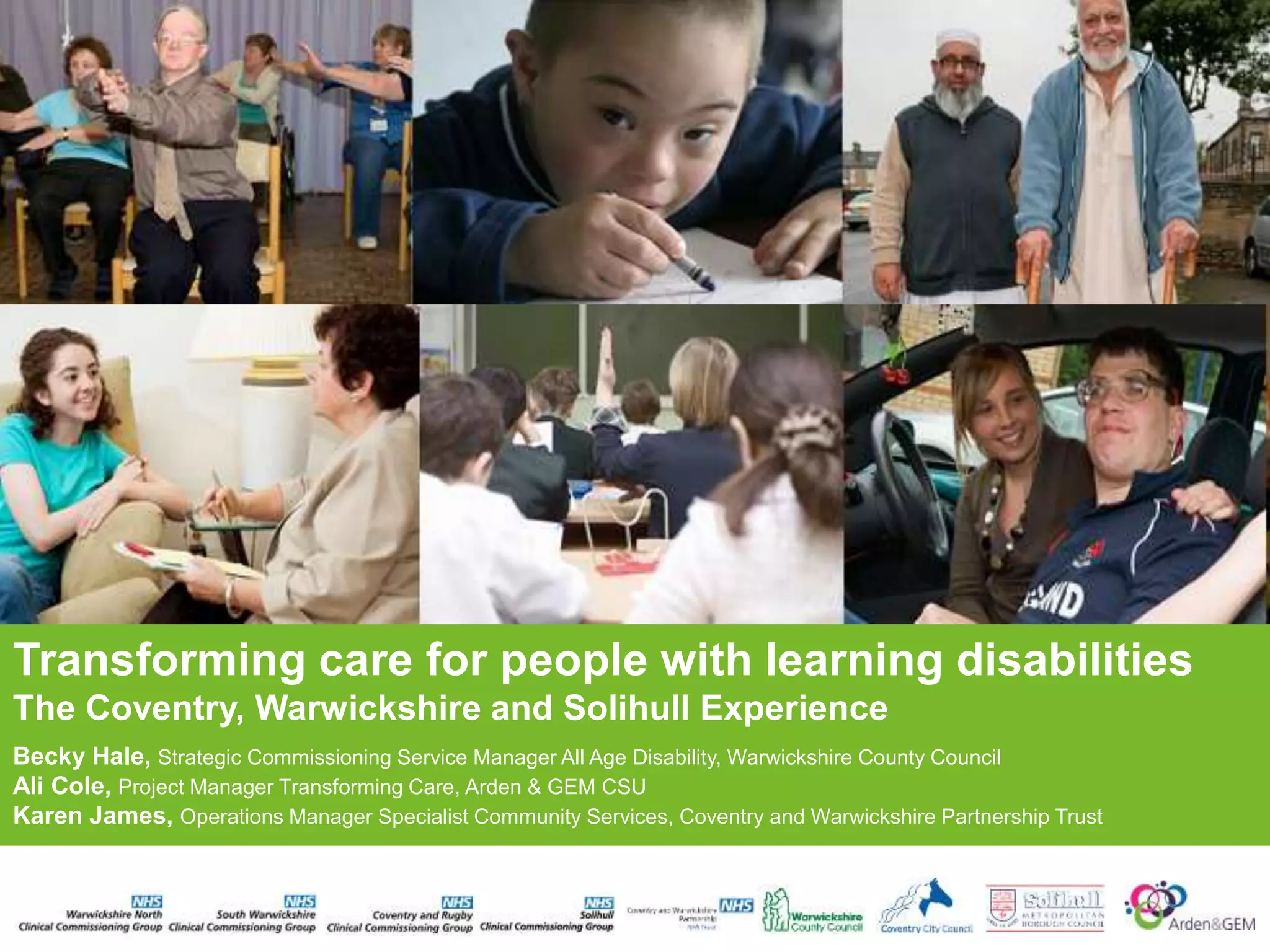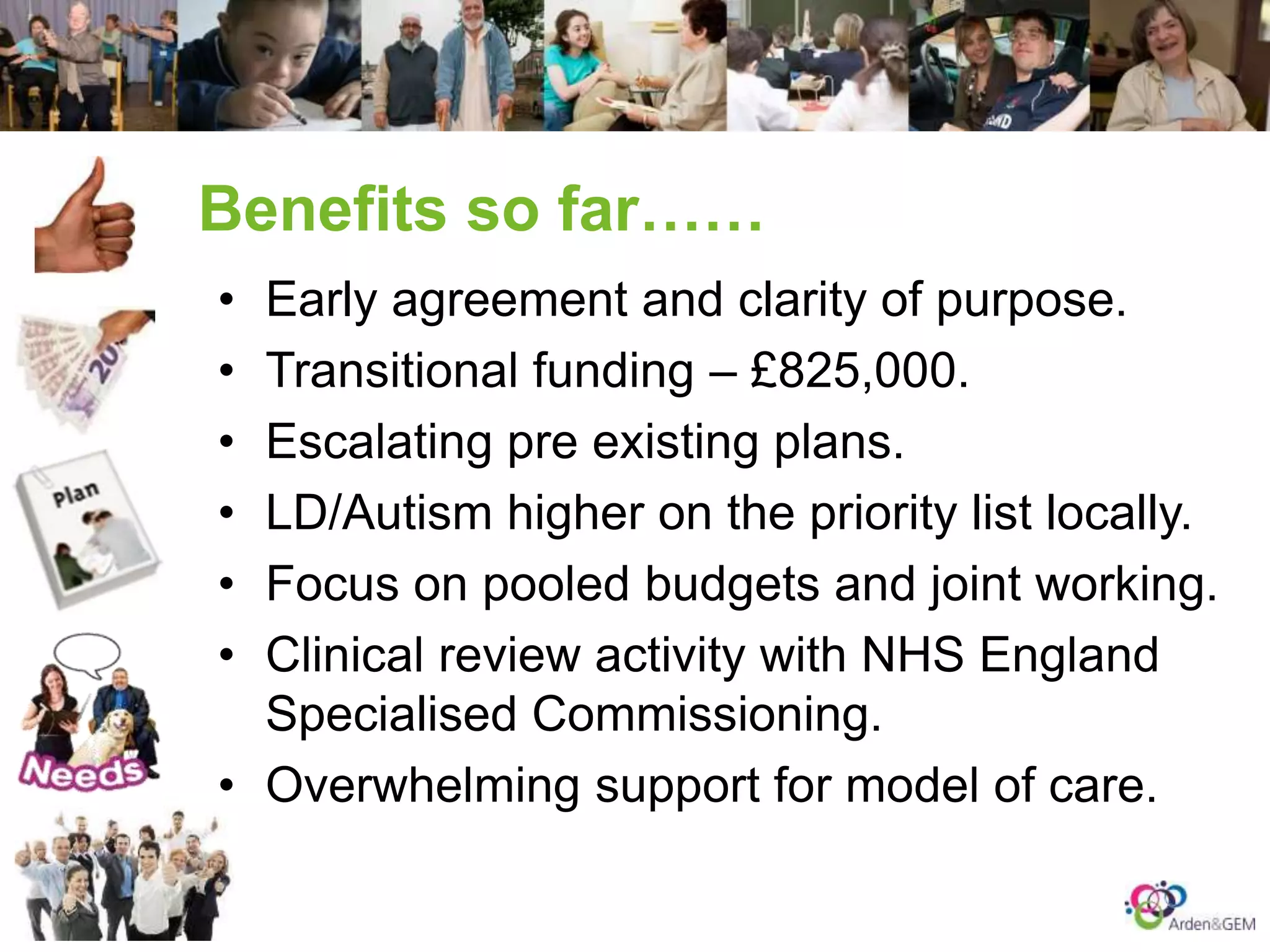The document summarizes key findings from the Health and Social Care Information Centre's 2013 Learning Disabilities Census report for England. It finds that over two-thirds (68.3%) of the 3,250 service users surveyed across 104 provider organizations had been prescribed antipsychotic medication. Additionally, nearly half (47.4%) of service users had been prescribed antidepressant medication. The document suggests these findings indicate high rates of psychotropic medication prescription among people with learning disabilities in England.

























































![www.england.nhs.uk/learningdisabilities
Make psychotropic medication the
last resort
The NICE guideline [NG11] Published date: May 2015 ‘Challenging
behaviour and learning disabilities: prevention and interventions for
people with learning disabilities whose behaviour challenges’
• Consider antipsychotic medication to manage
behaviour that challenges only if:
• psychological or other interventions alone do not
produce change within an agreed time or
• treatment for any coexisting mental or physical
health problem has not led to a reduction in the
behaviour or
• the risk to the person or others is very severe (for
example, because of violence, aggression or
self-injury).
• Only offer antipsychotic medication in combination
with psychological or other interventions.](https://image.slidesharecdn.com/1-160729090736/75/Transforming-care-for-learning-disabilities-58-2048.jpg)












































































